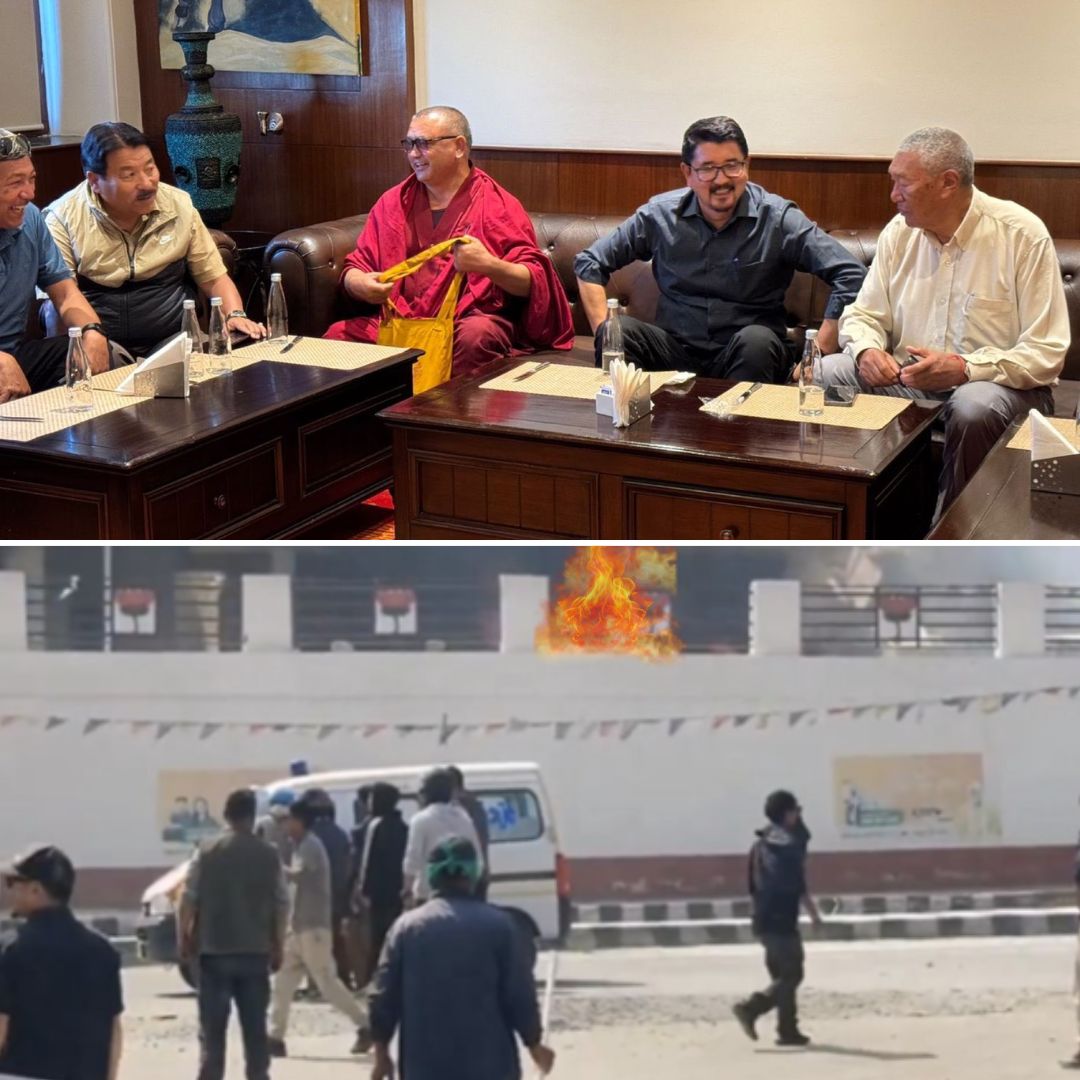The Leh Apex Body has taken a firm stance following violent clashes in Ladakh’s Leh district on September 24, 2025, stating “No Peace, No Talks With Centre.” The violence erupted during protests demanding statehood and constitutional protections for Ladakh. Four protesters were killed, and dozens injured in clashes with police, who responded with live ammunition and tear gas.
Activist Sonam Wangchuk, who led hunger strikes and marches for statehood, was arrested under the National Security Act. Despite heightened tensions, the government has announced talks scheduled for October 6, aiming to defuse the crisis.
Violent Clashes and Official Responses
The protests escalated violently with mobs setting fire to the BJP office, police vehicles, and government buildings. Police fired live rounds in self-defense, resulting in four deaths and over 70 injuries including security personnel. Curfews and internet blackouts were imposed to restore order. Lt Governor Kavinder Gupta condemned the violence as a calculated conspiracy aimed at destabilising Ladakh. Officials launched investigations and vowed strict action against perpetrators.
Meanwhile, supporters of the protests pointed to deep-rooted frustration over unemployment, poor governance, and unfulfilled political promises as causative factors. The BJP government blamed activist Sonam Wangchuk for inciting violence, accusing him of misleading the youth, a claim Wangchuk refutes by calling for peaceful dialogue.
Background: Ladakh’s Statehood Movement and Political Context
Ladakh, separated from Jammu and Kashmir in 2019, lacks full statehood and legislative assembly and is governed directly by the Union government through a Lieutenant Governor. The region’s Buddhist and Muslim communities, historically politically divided, united around demands for statehood, enhanced constitutional protection through Sixth Schedule inclusion, and job reservations.
Since 2021, socio-political groups like the Leh Apex Body and Kargil Democratic Alliance have mobilised consistent protests and hunger strikes. The Centre partially responded by increasing reservations and recognising local languages but many demands remain unfulfilled, fueling continuing unrest. The recent violent protests were preceded by a 35-day hunger strike led by Sonam Wangchuk and others, which they called off following the escalation.
The political dynamics pit local activists’ aspirations against the Centre’s security concerns in this geopolitically sensitive border region.
The sustained demand for statehood and constitutional recognition in Ladakh traces back decades, intensifying after the region was carved out as a Union Territory in 2019, separating from Jammu and Kashmir. The local population, a complex mix of Buddhist and Muslim communities, has historically grappled with political marginalisation and loss of administrative powers, especially with the reduction in the authority of district councils.
The Leh Apex Body and Kargil Democratic Alliance’s cooperation reflects a rare unity transcending religious divides, focused on securing Sixth Schedule protections, job reservations, and dedicated parliamentary representation.
The Logical Indian’s Perspective
The Logical Indian stands firm on the principles of peace, dialogue, and empathy in resolving Ladakh’s political and developmental issues. Violence and repression only deepen mistrust and suffering among the people of Ladakh.
True progress requires recognising their legitimate aspirations with transparent talks and inclusive governance that honours all communities. While security concerns are valid, safeguarding democratic freedoms and allowing peaceful dissent are equally vital in a vibrant democracy.













